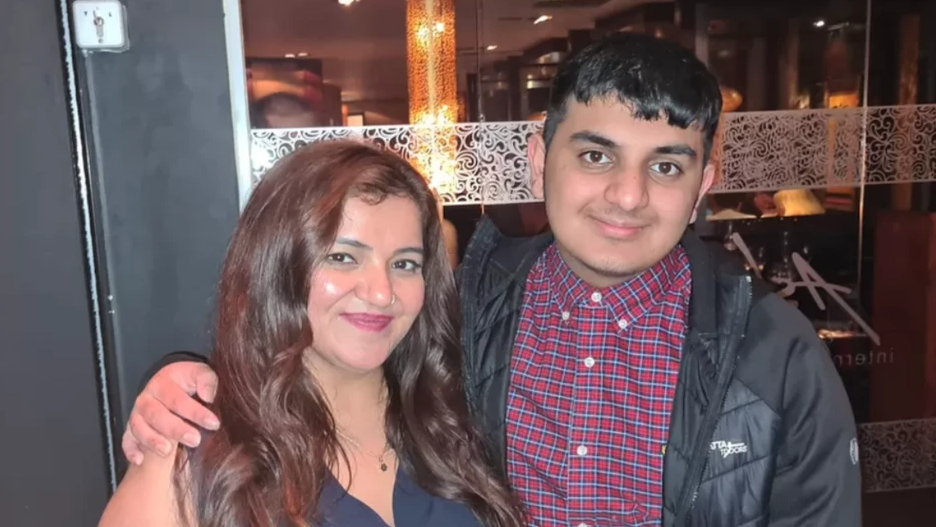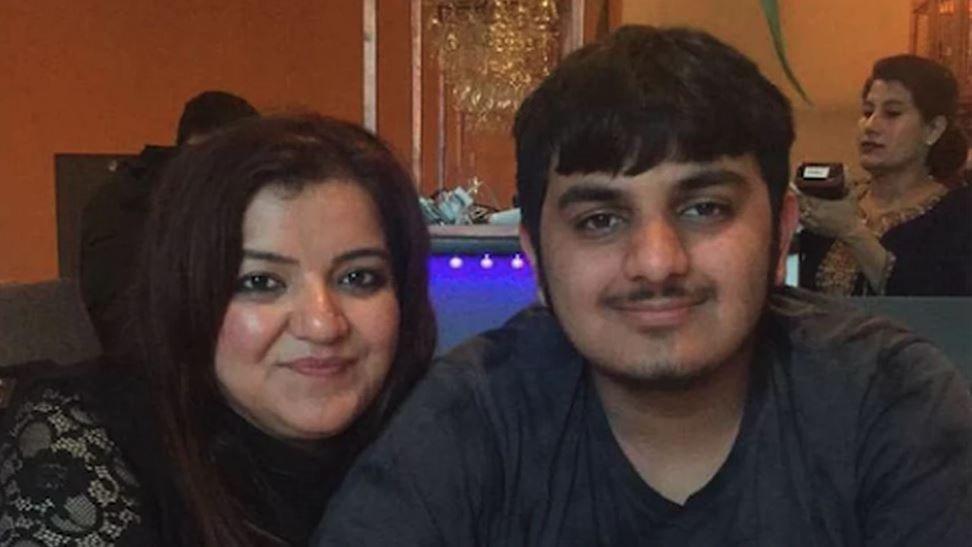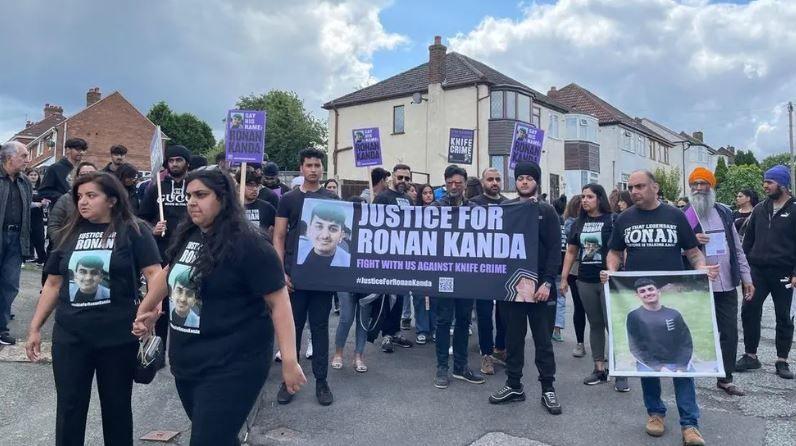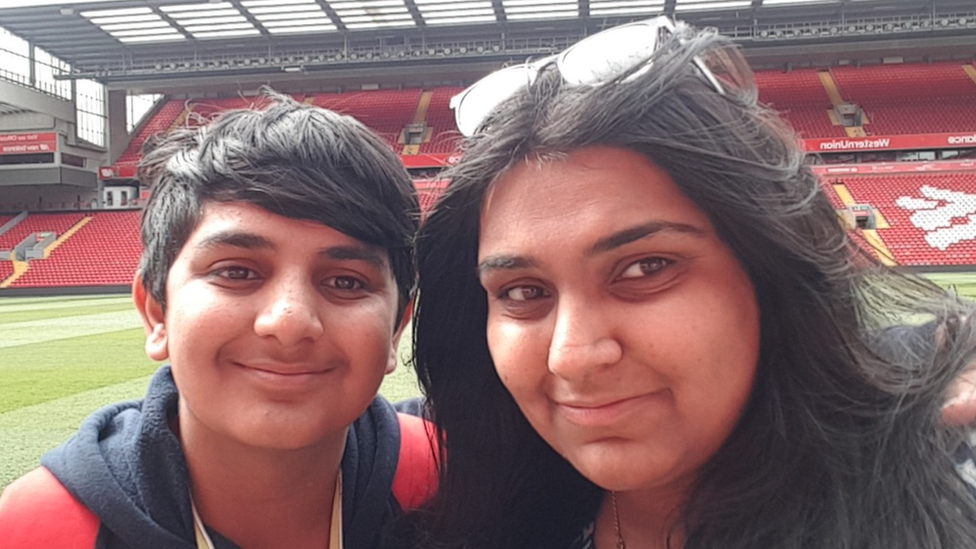'New ninja sword ban would have saved my son'

Pooja Kanda's son, Ronan, was killed by a teenager wielding a ninja sword in a case of mistaken identity in June 2022
- Published
After three years of relentless campaigning, the law that Pooja Kanda has so fiercely fought for finally comes into effect on Friday.
Ronan's Law, named after her son, will outlaw the manufacture, supply, sale, possession and importation of ninja swords.
However, for Ms Kanda, it comes several years too late. While this law may save countless lives, it cannot bring her own son back.
"It should have been implemented years ago. [If it had], I absolutely believe that he would still be here today."
Ronan Kanda, 16, had visited a friend's house to buy a PlayStation controller in June 2022.
He was just yards from his home in Wolverhampton when he was fatally stabbed with a ninja sword in a case of mistaken identity.
"I want to say what an amazing wonderful son he was," Ms Kanda said.
"He deserved to live. He would have made a positive impact on this planet."
Two teenagers - Prabjeet Veadhesa and Sukhman Shergill - were convicted of his murder.
On the day of the murder, Veadhesa had collected a ninja sword set and a large machete from a local post office, after buying them online using a fake name.
"That 16-year-old could get that [sword] just by going to the shop, while getting bread and milk," Ms Kanda said.
"He had more than 25 weapons. He was ordering them and selling them to other people.
"It was so easy. I was shocked. It shouldn't be that easy. "

Pooja Kanda says her son "didn't stand a chance"
A ninja sword is a large knife-like weapon between 14-24 inches (35-61cm) in length, with a straight, single-edged blade and a tanto or reverse tanto style point.
As of Friday, anyone found possessing such a ninja sword in private could face six months in prison and this could later increase to up to two years under the Crime and Policing Bill.
Ms Kanda said the introduction of Ronan's Law was a bittersweet moment, adding: "A mother had to campaign to get it done."
However, Ms Kanda believes the new legislation will have a powerful impact.
"I know it will have a significant effect on this type of weapon being available," she said.
The new law also requires retailers to report large or suspicious knife orders to the police and carry out strict age-verification checks on sales.
"With online sales being monitored, tech companies being held accountable - all of this will make a huge difference," Ms Kanda added.

Ronan's family called for a ban on the online sale of swords and large knives following his death
Since her son's death, Ms Kanda said that all she could see in any direction was knife crime and youth violence, and she is urging families of young people to be vigilant.
"I urge all the parents to come forward to support us, we need them," she said.
"To come forward and look at the signs.
"We need to make sure these youths that are on the path to destruction get the right support so they don't murder someone."
She added: "It's not my son who brought me here, it's the murderers - they're the reason I'm campaigning."
A surrender scheme ran throughout July to enable the weapons to be handed in safely.
The programme saw more than 1,000 removed from the streets in that time, the a Home Office spokesperson said, making it one of the country's largest weapons surrender schemes to date.

Ronan was just yards from home when he was killed in a case of mistaken identity
The government made a commitment to banning ninja swords in its 2024 election manifesto, external, as part of the Labour Party's pledge to "take back our streets" through a knife crime action plan.
Home Secretary Yvette Cooper later set out plans to crackdown on crime at the party's conference in 2024, when she said the government would attempt to halve knife offences in a decade.
New data from the government revealed that the number of reported robberies involving a knife dropped by 6%, from 16,068 to 15,028, between June 2024 and June 2025.
Ministers also announced an extra £5m would be made available for police and local authorities to try new, targeted actions on knife crime.
The new money will be used for knife crime hotspots across the country, where targeted intervention tactics will be trialled, including facial recognition technology and the use of drones to support police officers on the streets.
Get in touch
Tell us which stories we should cover in Wolverhampton
Follow BBC Wolverhampton & Black Country on BBC Sounds, Facebook, external, X, external and Instagram, external.
Related topics
- Published13 June

- Published27 March

- Published19 February
